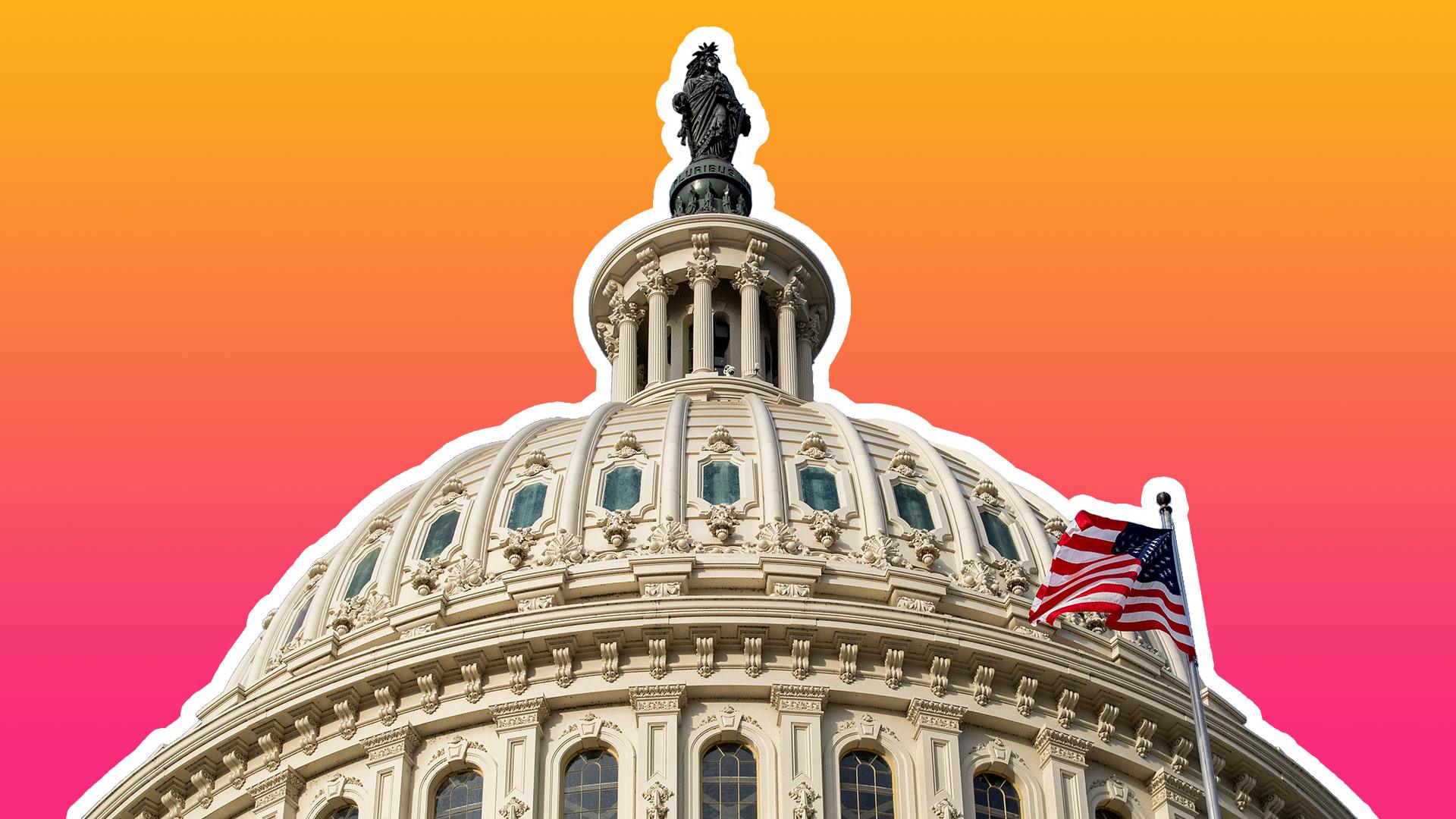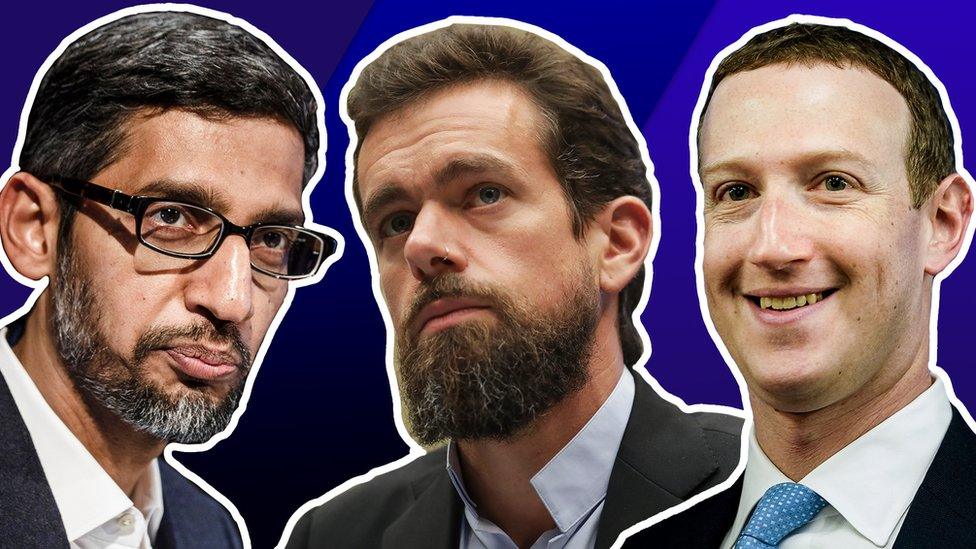Tech Tent: Did social media inspire Congress riot?
- Published

It was the most violent assault on the US Capitol since the British Army set it ablaze in the war of 1814.
This week's Tech Tent asks what role social media played in preparing the ground for the riots which saw Donald Trump's supporters storm Congress.


The BBC's disinformation specialist, Marianna Spring, told the programme that the roots of the anger on display amongst Trump supporters can be traced back to before the presidential election.
"President Trump, on his own Twitter feed, amplified and suggested that this election was going to be rigged, that there was going to be fraudulent voting," she said.
Then, after the election, she saw lots of Facebook groups spring up using the term "stop the steal", echoing Trump's own language.
Group think
Facebook removed many of the groups, but by then the damage was done - just as it was with the social media giant's belated move to remove content about the QAnon conspiracy theory.
"When the roots of these conspiracies are so deep, it comes as little surprise that the threats continued, the disinformation continued," Spring said.
"A lot of people who attended Capitol Hill felt so passionate about this - and really genuinely believed these false claims spreading online about voter fraud."
Disinformation researcher Dr Alexi Drew, of King's College London, said this "is something that a lot of us have been saying has been a real risk for quite some time".
She added: "It's just tragic that it's taken the realisation of that risk for others to listen, and actually realise that we weren't exaggerating what we've been trying to say for the past four years or more."
Many of the conspiracy theorists have moved on to far-right platforms such as Parler, when they have been banned from Facebook or Twitter.
But Dr Drew says the social media giants have no excuse for not moving more rapidly against groups which are spreading dangerous lies.
And she reserves her strongest criticism for Facebook, which has encouraged people to join such groups through its algorithm.
"They've had the controls and the ability to stamp down on group recommendations and these closed groups - and the content in these groups - since they were created.
"They've just not done it until now."
TV still has power
The question is what happens next. You might think that with both Democrats and Republicans extremely critical of social media, tighter regulation is a surefire bet under the Biden administration.
But what that will look like remains to be seen.
Will it, for instance, involve the repeal of section 230, which protects online platforms from legal action over user comments?
The danger is that tighter rules will be more expensive for tech companies - which could just reinforce the dominance of the existing wealthy players, shutting out newcomers.
And is it even clear that social media bears most of the responsibility for spreading the lies and hatred that led to the assault on the Capitol?
Remember, Fox News, talk radio stations and more recently TV channels such as OANN and NewsMax have fed their audiences a Trump-shaped view of the world for a long time.
Last year, Harvard University's Berkman Klein Center published a study of how misinformation spread about the amount of fraud in postal voting.
The researchers found that social media activity around the subject surged when mainstream news reports carried speeches about it by President Trump, peaking last April when Fox News ran numerous segments about its dangers.
Ever since the Reagan administration abolished the Fairness Doctrine in the 1980s, television news channels have been free to offer a partisan view. The result today is that viewers of Fox News and MSNBC might as well occupy two very different countries.
It is hard to see how tighter regulation of social media will change that.
- Published13 November 2020
- Published25 September 2020
- Published28 October 2020

